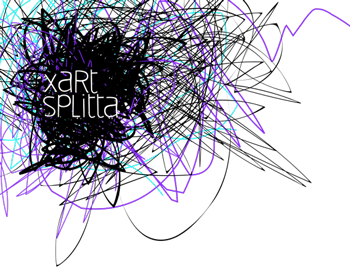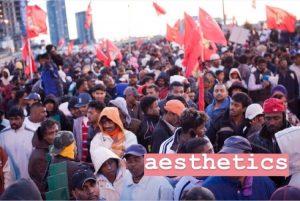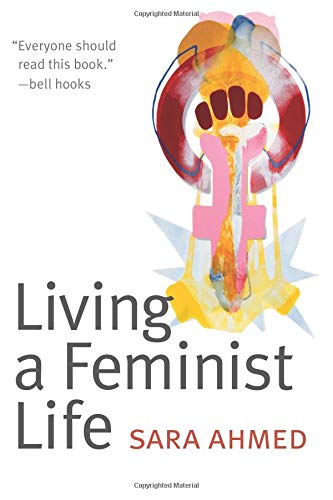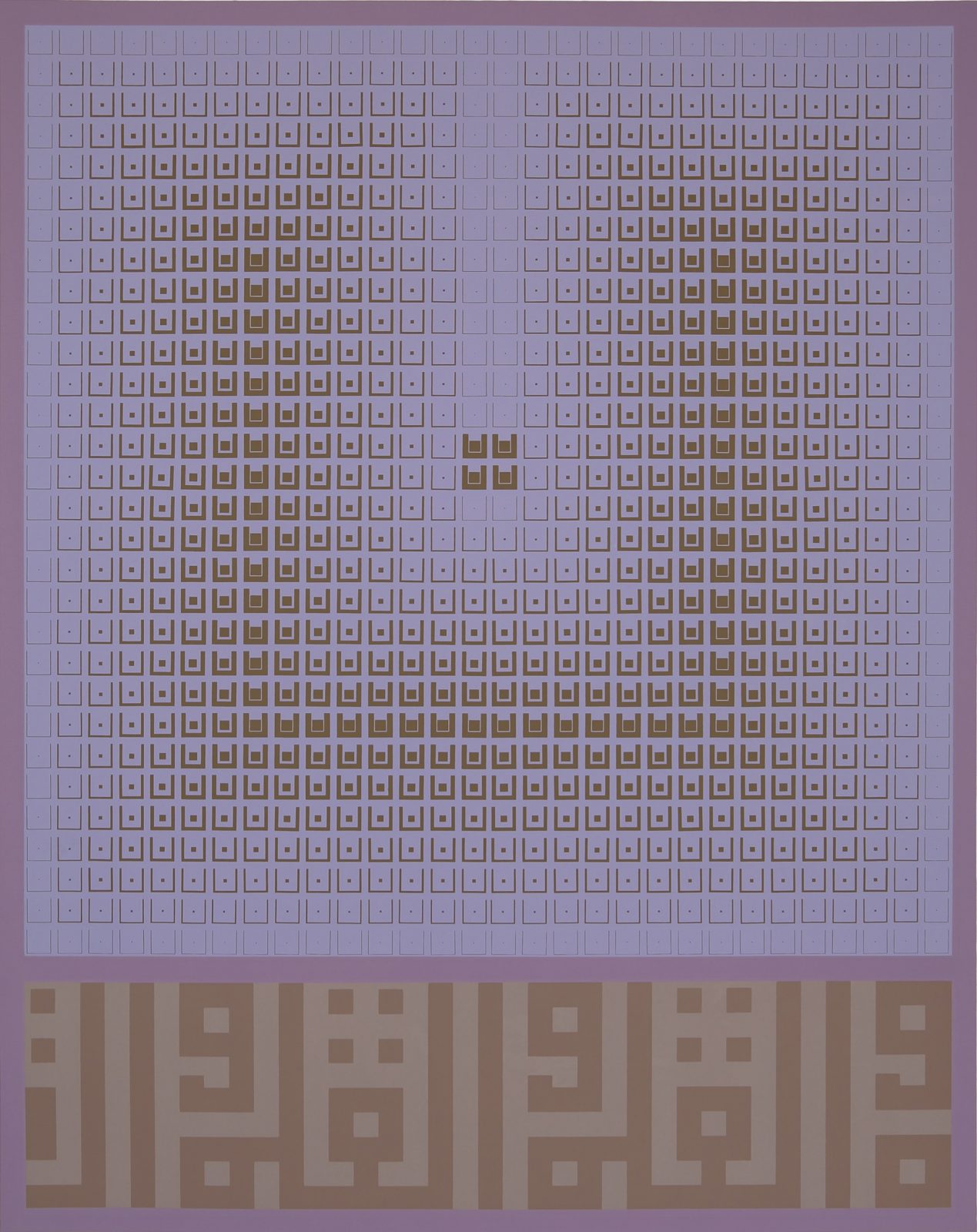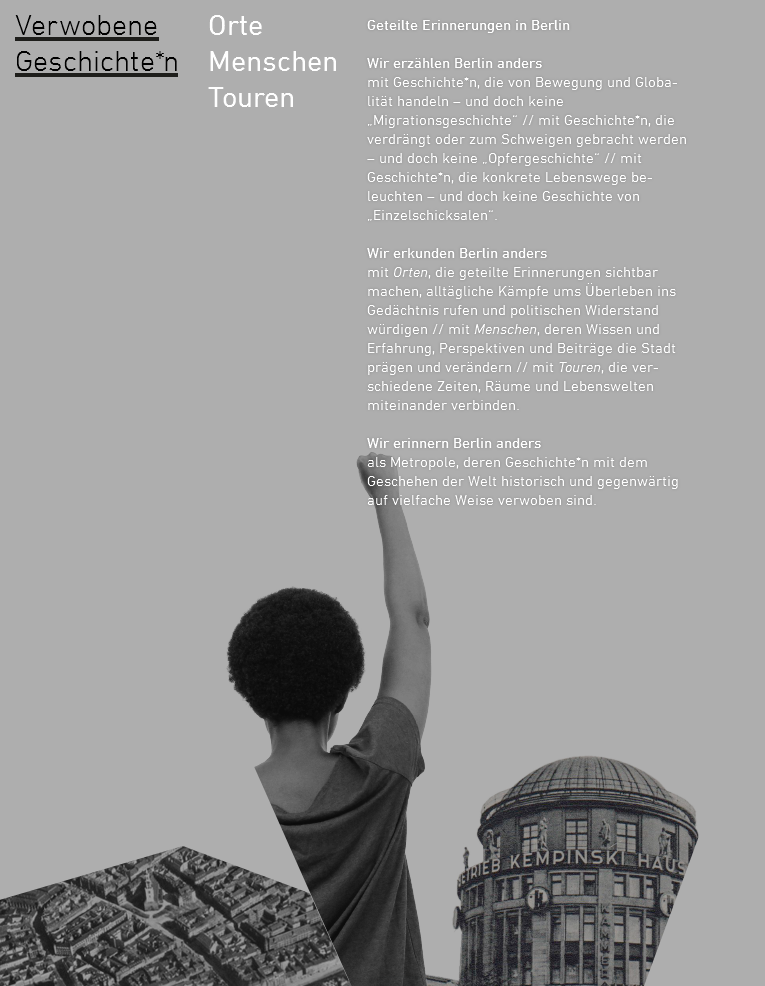2018
Dissolving Territories – 1+ Archipelago
1+ Archipelago
Thursday, March 22nd, 7pm @ aquarium am Südblock
Guest speaker: Prashanthy Sekaram
Recording of the event (Eng.).
How can home be narrated, detached from borders/frontiers and be renegotiated or created in the everyday? Can one redesign and maintain a lost country in the intimate, in your personal living space? And how does one define the question of territorial belonging via the personal living space in exile?
These and other questions we want to attend to in the opening/kick-off event for our three-part series »Dissolving Territories | cultural geographies of a new eelam«. In this context we look at different living spaces of Tamil individuals and families in exile proceeding from the consideration which continuities and memories manifest in articles of daily use and whether they can contribute to a territorial detachment from the lost home .
In this context we also inquire into spatial cultures of remembrance/memory; which narratives appear, are narrated/represented? Which traumata do we carry across generations and how are they located in living space?
Reading and Discussion – “Living a Feminist Life” with Sara Ahmed
Friday, June 22nd, 6pm @ aquarium am Südblock, Skalitzer Straße 6, 10999 Berlin.
In Living a Feminist Life Sara Ahmed shows how feminist theory is generated from everyday life and the ordinary experiences of being a feminist at home and at work. Building on legacies of Feminist of Colour scholarship in particular, Ahmed offers a poetic and personal meditation on how feminists become estranged from worlds they critique […] and how feminists learn about worlds from their efforts to transform them. Ahmed also provides her most sustained commentary on the figure of the feminist killjoy. (Book description Duke University Press).
Living a Feminist Life was translated into German and published by the Unrast Verlag in August 2017. For those interested in a more intensive engagement with the topics addressed in the book ,the event will be preceded by a preparatory reading circle.
The talk will be followed by a plenary discussion.
Language: Spoken English. German translation can be provided if necessary.
Further information about the book: unrast-verlag.de/neuerscheinungen/feministisch-leben-detail
—
Sara Ahmed is a feminist writer and independent scholar. She works at the intersection of feminist, queer and race studies. Her research is concerned with how bodies and worlds take shape; and how power is secured and challenged in everyday life worlds as well as institutional cultures. Until the end of 2016, she was a Professor of Race and Cultural Studies at Goldsmiths, University of London having been previously based in Women’s Studies at Lancaster University. Sara Ahmed resigned from this post at Goldsmiths in protest at the failure to deal with the problem of sexual harassment. Living a Feminist Life is her 8th publication. Further publications by Sara Ahmed include: Differences that Matter: Feminist Theory and Postmodernism (1998), Strange Encounters: Embodied Others in Post-Coloniality (2000), The Cultural Politics of Emotion (2004, second edition 2014), Queer Phenomenology: Orientations, Objects, Others (2006), The Promise of Happiness (2010), On Being Included: Racism and Diversity in Institutional Life (2012) and Willful Subjects (2014). For further information pls. also visit Sara Ahmed’s Webpage: www.saranahmed.com/
The event was preceded by four sessions of a reeding group on the book “Living a Feminist Life”. More information here: www.xartsplitta.net/sara-ahmed/
Islamic Feminisms – Reflections on Intersectionality and Religion
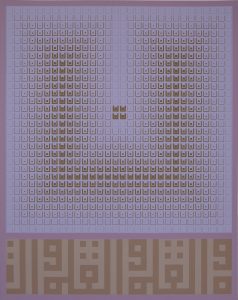
Wednesday, March 7th, 7pm

Islamic Feminisms – Reflections on Intersectionality and Religion
Audio recording: https://soundcloud.com/user-276031808/islamic-feminisms
Book launch and round table with the author Lana Sirri (Maastricht), Amal Abu-Bakare (Aberystwyth) and Dino Suhonic (Maruf, Amsterdam). Moderation: Nahed Samour (Berlin).
In the wake of ever growing anti-Muslim tendencies in Germany and globally we would like to ask how far we need to start including religion more explicitly in our examinations of the intersection of different axes of oppression. How can this be helpful and important for the development of strategies in dealing with manifestations of anti-Muslim racism? How can network building be facilitated by an analysis of these phenomena?
On this evening we would like to bring together different perspectives from Islamic feminists and open a space in which these questions can be examined and discussed in a congenial mindful atmosphere. We are looking forward to welcoming guests from a range of professional and activist backgrounds and warmly invite participants with basic knowledge on theories of intersectionality and Islamic feminisms.
Language: Spoken English
An event by xart splitta in cooperation with w_orten und meer (http://wortenundmeer.net/)
Location: xart splitta, Hasenheide 73, 10967 Berlin. Pls. ring at xart splitta/w_orten und meer.
Flyer as PDF: plakat_islamicfeminisms
About the speakers:
Amal Abu-Bakare is a doctoral student at Aberystwyth University, studying racialisation and counterterrorism in the context of International Relations Theory. She identifies as a Black Muslim Feminist, and is interested in social justice, art, and media projects that address the intersections between race, gender, and religion. Amal frequently writes and comments on the politics of race on Twitter and her blog colouredacademia.
Lana Sirri is Assistant Professor of Gender and Religion at the FASoS, Department of Literature and Art, Maastricht, The Netherlands. She studied sociology at Tel-Aviv University and worked as a coordinator in the Women’s Project of the Arab-Jewish Community Center in Jaffa. Her research interests include: Gender, Queer, Post- and Decolonial theories, as well as theories on Islamic feminisms.
Sirri completed both her MA in Gender Studies and her PhD at the Humboldt University Berlin (HU). Her dissertation entitled “Islam, Gender and Sexuality – Insights into the Interdisciplinary Discourse of Contemporary Muslim Feminists” involves a critical evaluation of Muslim feminist discourses.
Dino Suhonic is director of the Maruf Foundation (http://www.maruf.eu/), a platform from and for Queer muslims in the Netherlands and beyond. Dino Suhonic is also a lecturer, opinion maker and queer activist. They write about queer Muslims, Islam, sexual diversity and gender identity.
Moderation:
Nahed Samour is a law and Islamic scholar and studied in Bonn, Berlin (HU), Birzeit / Ramallah, Damascus, London (SOAS), Harvard and at the Max Planck Institute for European Legal History in Frankfurt / Main. Since 2015, she is Junior Faculty at Harvard Law School, Institute for Global Law and Policy and Post-Doc Researcher at the Eric Castrén Institute of International Law and Human Rights, Helsinki University on “Order and Contestation in Islamic International Law and Relations”. She earned her doctorate at the Humboldt University Berlin, Faculty of Law on “An Islamic Critique of Adjudication”.
About the book:
In her book “Einführung in islamische Feminismen”, Lana Sirri provides an introduction to theory and practice of islamic feminisms: On its ideas, conceptions and approaches; how they are defined and who is defining them; on the role of religion, gender role models, sexuality, and geographic positions in the different islamic feminisms, and on differences and common grounds in and between muslim communities concerning islamic feminism.
Lana Sirri presents different feminist positions and discusses gender- as well as sexuality-sensitive interpretations of the “holy texts”, and interviews German muslim activists on the actual battles and defiances of queer and feminist muslims in Germany.
Verwobene Geschichten – Geteilte Erinnerungen
Mittwoch, 31.01.2018, 19h
Erzählungen zu marginalisierten Erinnerungen und Widerständen in Berlin
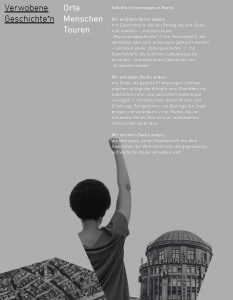
“Wir erzählen Berlin anders
mit Geschichte*n, die von Bewegung und Globalität handeln – und doch keine „Migrationsgeschichte“ // mit Geschichte*n, die verdrängt oder zum Schweigen gebracht werden – und doch keine ‘Opfergeschichte’ // mit Geschichte*n, die konkrete Lebenswege beleuchten – und doch keine Geschichte von ‘Einzelschicksalen’.
Wir erkunden Berlin anders
mit Orten, die geteilte Erinnerungen sichtbar machen, alltägliche Kämpfe ums Überleben ins Gedächtnis rufen und politischen Widerstand würdigen // mit Menschen, deren Wissen und Erfahrung, Perspektiven und Beiträge die Stadt prägen und verändern // mit Touren, die verschiedene Zeiten, Räume und Lebenswelten miteinander verbinden.” (von der Webseiten Verwobene Geschichte*n)
Eine szenische Vorstellung zum Projekt “Verwobene Geschichte*n” mit Diane Izabiliza, Olga Gerstenberger und Ozan Keskinkılıç.
Zu den Sprecher_innen:
Diane Izabiliza studiert Soziokulturelle Studien an der Europa Universität Viadrina, in Frankfurt Oder. Sie ist Absolventin des Bachelorstudiengangs Soziale Arbeit an der Alice Salomon Hochschule, Berlin und gelernte Erzieherin. Zu ihren Studienschwerpunkten gehören, Gender, Rassismusforschung, postkoloniale Theorien, Intersektionalitätsforschu ng und kritische Migrationsforschung. Sie arbeitet als studentische Mitarbeiterin im Praxis Forschungsprojekt „Passkontrolle! Leben ohne Papiere in Geschichte und Gegenwart“. Zuvor war sie im Praxis Forschungsprojekt „Erinnerungsorte. Vergessene und verwobene Geschichten“ tätig. Von 2011 bis 2016 war sie Gründungsmitglied im Jugendnetzwerk „Ruanda Connection“.
Olga Gerstenberger ist wissenschaftliche Mitarbeiterin im Projekt „Passkontrolle! Leben ohne Papiere in Geschichte und Gegenwart“ und Lehrbeauftragte an der Alice Salomon Hochschule. Zuvor war Sie Koordinatorin im Projekt „Erinnerungsorte. Vergessene und verwobene Geschichten“. Sie studierte Politikwissenschaft an der Universität Bielefeld und hat einen vom DAAD geförderten Master in „Ideology and Discourse Analysis“ (University of Essex). Nach Abschluss ihres Studiums unterrichtete sie an der Freien Universität Berlin, sowie der Alice Salomon Hochschule im Bereich der rassismuskritischen Migrationsforschung/ historisch-politischen Bildung und war in unterschiedlichen Film- und Bildungsprojekten, vor allem bei der Initiative with WINGS and ROOTS, aktiv.
Ozan Z. Keskinkılıç ist Politikwissenschaftler, Aktivist und politischer Bildner. Er studierte Internationale Entwicklung und Internationale Beziehungen in Wien und Berlin. Zu seinen Forschungsschwerpunkten zählen Orientalismus, (antimuslimischer) Rassismus und Antisemitismus, Migration sowie deutsche Kolonialgeschichte und postkoloniale Erinnerungskultur. Von 2014-2016 forschte er im Praxisforschungsprojekt “Erinnerungsorte. Vergessene und verwobene Geschichten” schwerpunktmäßig zur Verschränkung deutscher Islam-, Kolonial- und Orientpolitik und wirkte an der Gestaltung der digitalen Stadttour “Koloniale Ordnungen” mit. Aktuell ist er Lehrbeauftragter im Arbeitsbereich Diversity Studies/ Rassismus und Migration an der Alice-Salomon-Hochschule Berlin und unterrichtet zu (Post-)Kolonialismus und kritischer Migrations- und Rassismusforschung. Aktuelle Publikation: ‘Der orientalische Mann‘ vor|nach Köln. Zur sexuell-kulturellen Dynamik des antimuslimischen Rassismus in der Fluchtdebatte.’ In: Yurdakul, G. et al. (Hg.) (2017): Witnessing the Transition. (twitter: @ozankeskinkilic)
Mehr Infos zum Projekt unter: http:// www.verwobenegeschichten.de /
